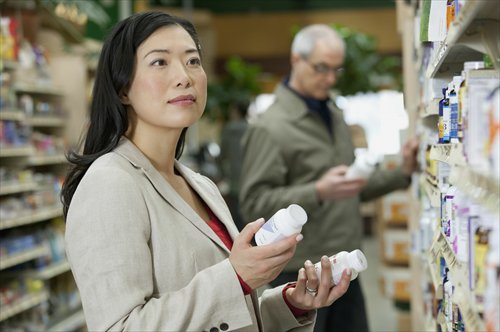HOME >> METRO BEIJING
Buying medicine overseas
By Zhang Xinyuan Source:Global Times Published: 2015-3-31 19:28:01
Why Chinese tourists are stocking up on painkillers

Many Western drugs are on a long waiting list for approval to be sold in China. Photo: IC
Ever since 36-year-old Mao Jie, a primary school teacher in Beijing, became a mother two years ago, she insisted on only letting her son take medicine that had been bought overseas. Soon, the rest of her family followed suit.During this year's Spring Festival, Mao and her family went to Japan for sightseeing and shopping, but not for the cosmetic products, clothes or the rice cooker that Chinese tourists fought over according to widely circulated media reports. They wanted medicine, including children's cold medicine, painkillers, and cough spray and lozenges by Ryukaku-San to combat Beijing's pollution.
"I think that the ingredients in Japanese medicine are more trustworthy compare to China's, and they are more effective," Mao said. "Plus, the medicine's fruit like flavor and design are more welcomed by children."
According to a Wall Street Journal report in March, of the 6 billion yuan ($960 million) Chinese tourists spent in Japan during this year's Spring Festival, pharmaceutical products topped shopping lists over the holiday. The report cited research conducted by Japanese social media analytic firm Hottolink which said the most popular medicines included household over-the-counter drugs such as painkillers, cold medicine and liquid bandages.
This is a manifestation of a phenomenon that has been going on for a long time. Searching medicine or health care products from the UK, US, Germany, Japan and Hong Kong on taobao.com, China's largest e-commerce website, reveals thousands of online purchasing agents that promise to buy the medicines overseas. Product lines include eye drops from Japan, cod liver oil from the UK and garlic capsules from Germany. On online shop, "No.1 Beijing Girl Shop," deep sea fish oil capsules produced by Doppelherz from Germany were sold out last month.
Gong Xiaoming, a gynecologist at Amcare Women's and Children's Hospital in Beijing and founder of online consultation platform china-obgyn.net said he doesn't think that the quality of medicine from outside China is better.
"It's just the news about unqualified drugs that scares patients, and the designs of the overseas drugs are indeed more thoughtful," Gong said. "But there is the problem that some overseas drugs can't get into the Chinese market because China requires the drug to go through a clinical test in China again after the clinical test has been done in other countries."
Gong said the clinical tests usually take at least a year and are expensive, so Chinese patients can't enjoy the most edge-cutting medicines, and some medicine companies don't bother entering the Chinese market.
The Wall Street Journal report said the China Food and Drug Administration's Center for Drug Evaluation approved 501 drugs last year, including 70 imported drugs, but still have 18,597 drug applications to review.
For those who need to buy pharmaceuticals they can't get in China, Gong suggests they go to an accredited hospital or drug store in developed regions or countries to purchase in person instead of through purchasing agency.
It is illegal to sell unapproved overseas medicines in China through the Internet or other channels, according to a report published in The Mirror in June 2014.
For things like cold medicine or other health care products Lü Liangzhong, the director of the Pharmaceutical Department in Zhejiang Provincial People's Hospital said that he doesn't think patients need to bother buying medicine overseas.
"The ingredients in cold medicine and painkillers are all the same," Lü said. "If the patients have a bad reaction over the medicine bought from overseas, they can't even report it to the supervision department and get compensation."
Posted in: Intel